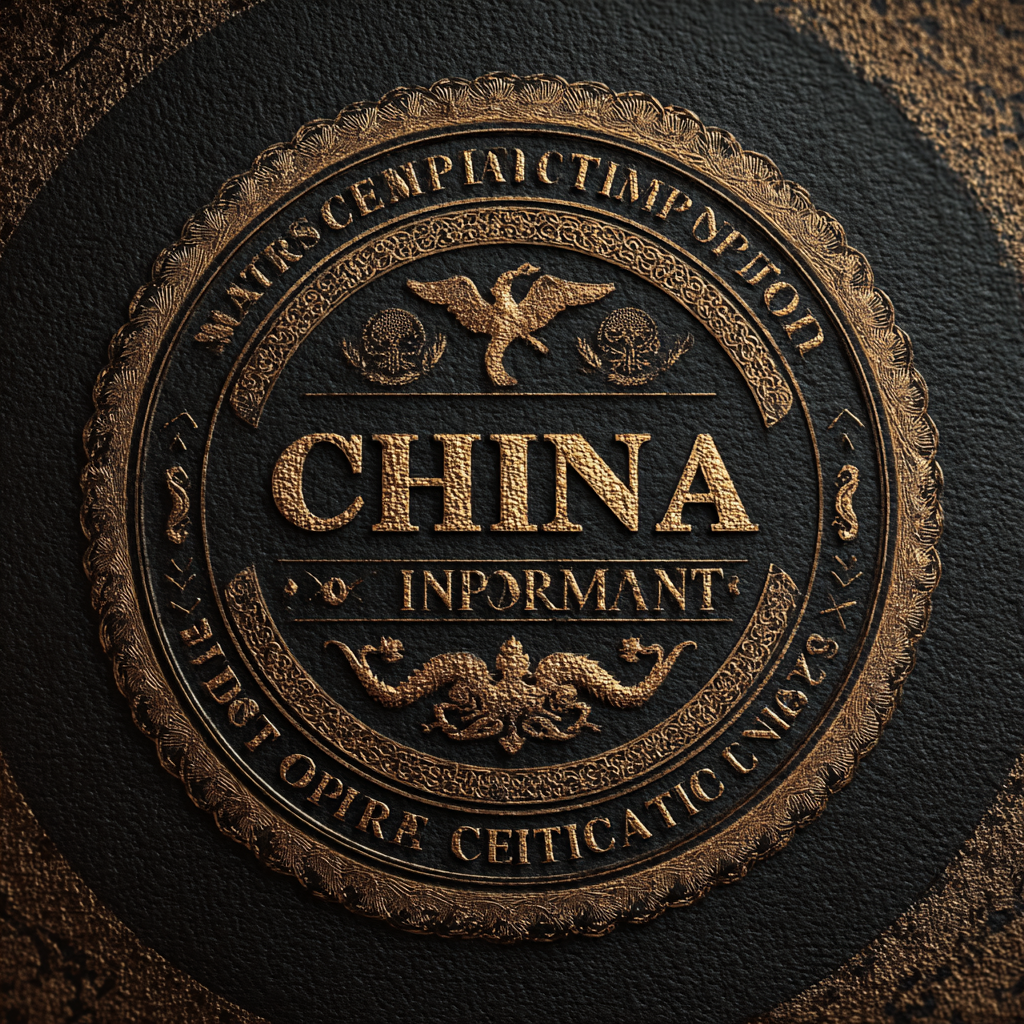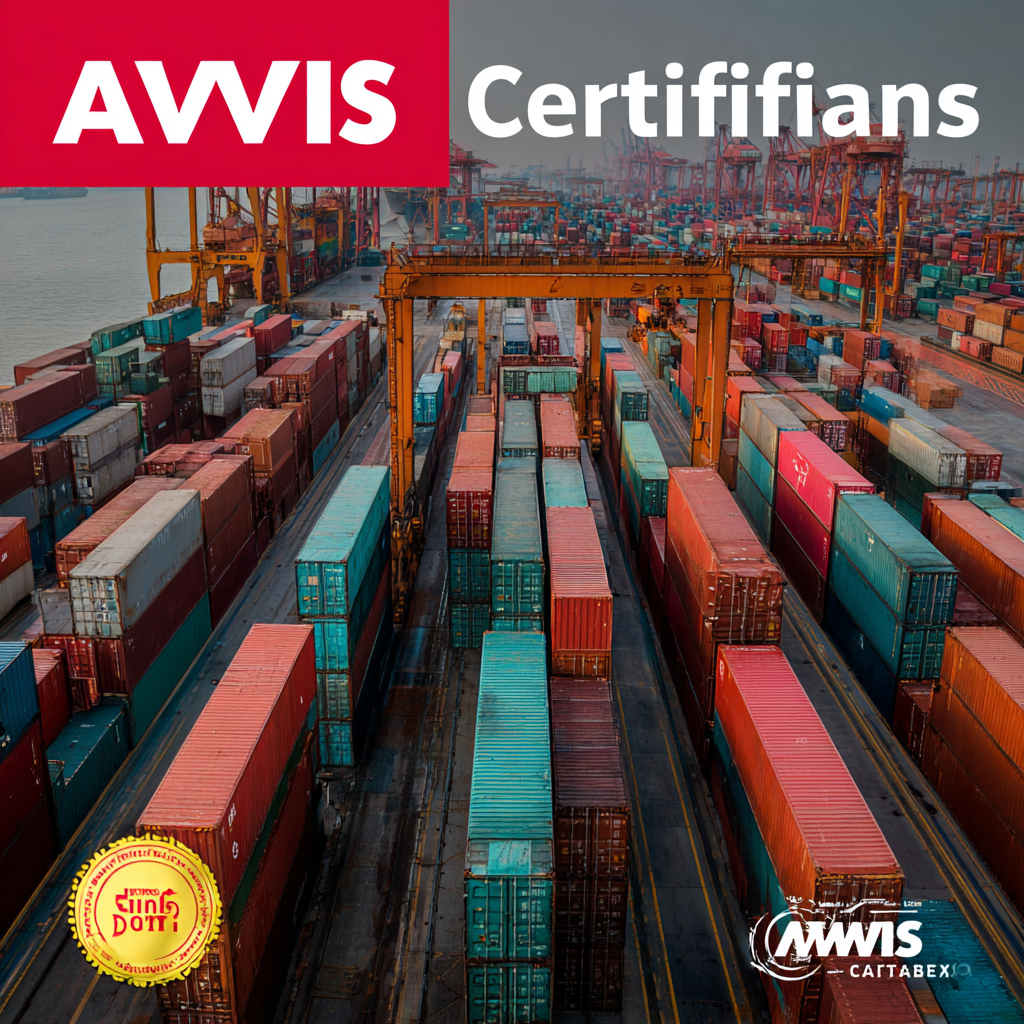

In the rapidly evolving landscape of global trade, understanding the complexities of import and export certifications is essential for businesses aiming to thrive, particularly those engaging with China. As one of the world's largest economies and a hub for manufacturing and export, China presents unparalleled opportunities for companies looking to expand their market reach. However, navigating the intricate web of regulations and standards can be daunting. This blog will unlock the myriad of global trade opportunities by delving into the best import and export certifications available in China. We will explore various industry-specific certifications, their significance, and how businesses can effectively leverage them to ensure compliance and enhance their competitive edge. Whether you are an established importer or exporter or a newcomer seeking to tap into the lucrative Chinese market, understanding these certifications will be key to unlocking your business's full potential.

In the realm of global trade, understanding the importance of import and export certifications in China is crucial for businesses seeking to thrive in this competitive market. These certifications are not just bureaucratic hurdles; they serve as essential tools that validate the quality, safety, and compliance of products, thus enhancing their credibility on the international stage. Companies equipped with the right certifications often find it easier to navigate complex regulatory landscapes, gain trust from partners, and enter new markets.
When pursuing certifications, it is beneficial to conduct thorough research into the specific requirements for your industry. Different products may require different certifications, such as the China Compulsory Certificate (CCC) for certain electrical products or the Food Safety Certification for food-related items. Ensuring that your products meet these standards from the outset can aid in avoiding costly delays or rejections.
Tip: Collaborating with local experts or consultants can streamline the certification process. They can provide insights into regional regulations and help in the preparation of necessary documentation. This proactive approach not only saves time but also ensures compliance, allowing businesses to focus on growth and expansion in the vast Chinese market.
China's ambition to dominate the global halal food market reveals a significant opportunity for local producers to enhance their international marketability through strategic certifications. As the world's second-largest economy, China is on the verge of tapping into an industry projected to reach $2.6 trillion by 2026, emphasizing the need for halal certification. This certification not only allows Chinese food products to access Muslim-majority markets but also boosts consumer confidence across diverse cultures, facilitating smoother entry into global supply chains.
In addition to food products, China's prowess in the electric vehicle (EV) sector presents another avenue for certifications to enhance global competitiveness. With Chinese firms accounting for nearly two-thirds of the world's electric vehicle production, securing ISO certifications and compliance with international standards can further solidify China's position. Studies suggest that the global EV market is expected to surpass $800 billion by 2027, illustrating the critical role certifications play in ensuring product credibility and boosting exports.
Moreover, as sustainability becomes a prime focus, the need for certifications in eco-friendly production methods will intensify. The Renewable Energy Certificate (REC) market is projected to grow from $27.99 billion in 2025 to $45.45 billion by 2030. By obtaining relevant environmental certifications, Chinese manufacturers can effectively align with global sustainability goals, enhancing their attractiveness in the green economy.
Navigating the certification process is crucial for Chinese manufacturers looking to tap into global trade opportunities. The journey often begins with understanding the various certifications relevant to their products, such as ISO standards, CE marking for the European market, and FDA approval for the United States. Each certification not only enhances product credibility but also opens doors to international markets, ensuring compliance with regulatory standards and boosting customer confidence.

Once manufacturers identify the necessary certifications, the next step involves gathering the required documentation, which often includes technical specifications, quality control processes, and product test results. Engaging a reliable consulting firm or industry expert can facilitate this process, providing guidance on specific regional requirements and helping to streamline the submission of applications. Additionally, investing time in training staff about the certifications and quality standards can further ensure that the manufacturing processes align with international expectations, ultimately leading to smoother entry into global markets.
In today's dynamic global trade landscape, the significance of quality upgrades cannot be overstated. A recent report from the World Trade Organization highlights that countries with stringent import and export certification standards have seen a 20% increase in trade volumes over the past five years. This emphasizes the importance of adhering to internationally recognized quality standards, which not only enhances product reliability but also fosters trust between trading partners.

To thrive in the competitive export markets, businesses must prioritize obtaining the right certifications. For instance, certifications such as ISO 9001 for quality management or the CE Mark for compliance with European health and safety standards can provide a significant edge. Companies that invest in these certifications often report a higher customer satisfaction rate, with studies showing that 75% of consumers are more likely to purchase from certified businesses.
Tips for businesses looking to enhance their quality standards include regularly reviewing and upgrading internal processes, engaging in staff training programs focused on quality management, and staying informed about changing certification requirements. This proactive approach not only opens up new trade opportunities but also positions companies favorably in an increasingly quality-conscious marketplace.
In today's competitive market, Chinese brands are increasingly recognizing the value of import and export certifications in unlocking global trade opportunities. To illustrate this, we can look at the success stories of several Chinese companies that have effectively leveraged various certifications to enhance their international presence. For instance, Company A, a leading manufacturer of electronic goods, obtained the CE and FCC certifications that allowed it to tap into European and North American markets. As a result, their products are not only more trusted by consumers but have also seen a significant increase in sales abroad.
Another compelling case is of a Chinese organic food producer that acquired USDA Organic certification. This strategic move enabled the company to enter the highly regulated U.S. market, distinguishing its products in a crowded field. By marketing the organic credentials, the brand appealed to health-conscious consumers, resulting in a 150% growth in exports within just two years. These case studies exemplify how understanding and obtaining the right certifications can create pathways for Chinese brands to thrive globally, reflecting the critical role of compliance in international trade.
| Certification Type | Industry | Market Access | Benefits | Success Rate |
|---|---|---|---|---|
| ISO 9001 | Manufacturing | Europe, North America | Improved quality management, customer satisfaction | 85% |
| CE Marking | Consumer Electronics | European Union | Access to EU market, enhanced safety | 90% |
| FDA Approval | Food and Pharmaceuticals | United States | Consumer trust, higher sales | 75% |
| RoHS Compliance | Electronics | Europe, North America | Reduction of hazardous materials, competitive edge | 80% |
| Organic Certificate | Agriculture | Worldwide | Access to niche markets, premium pricing | 88% |